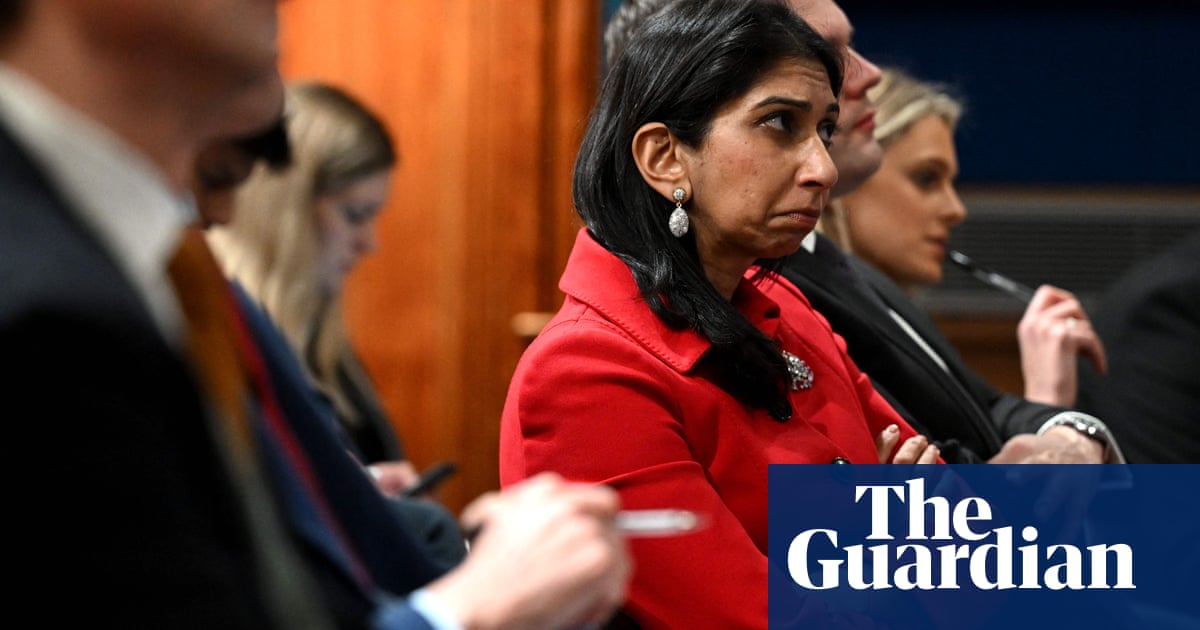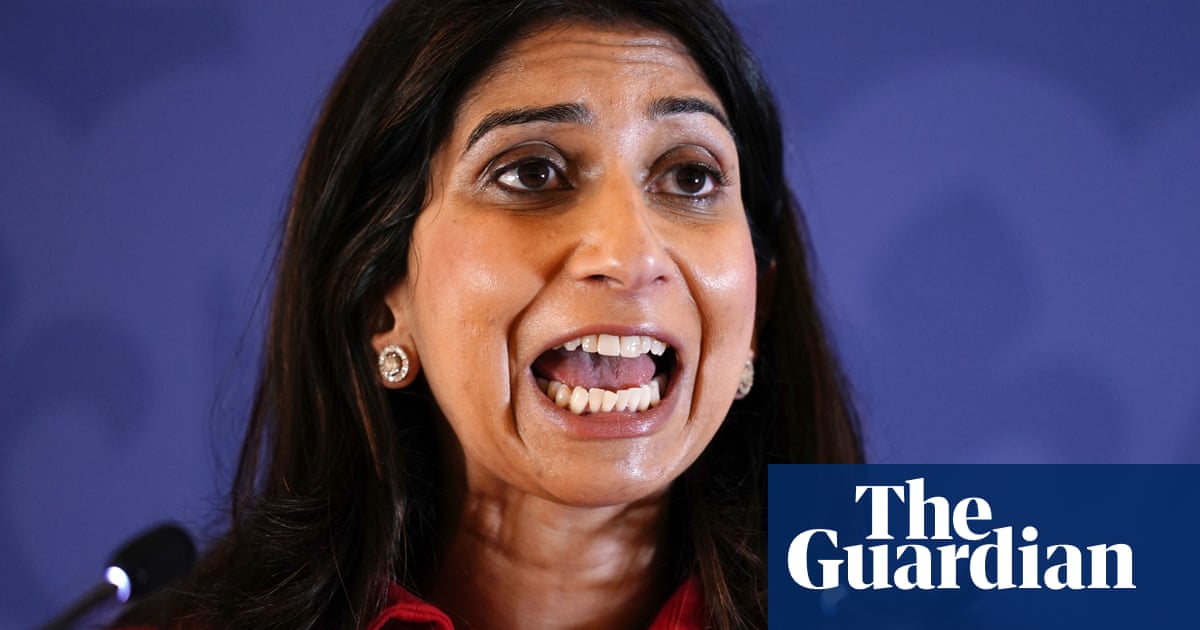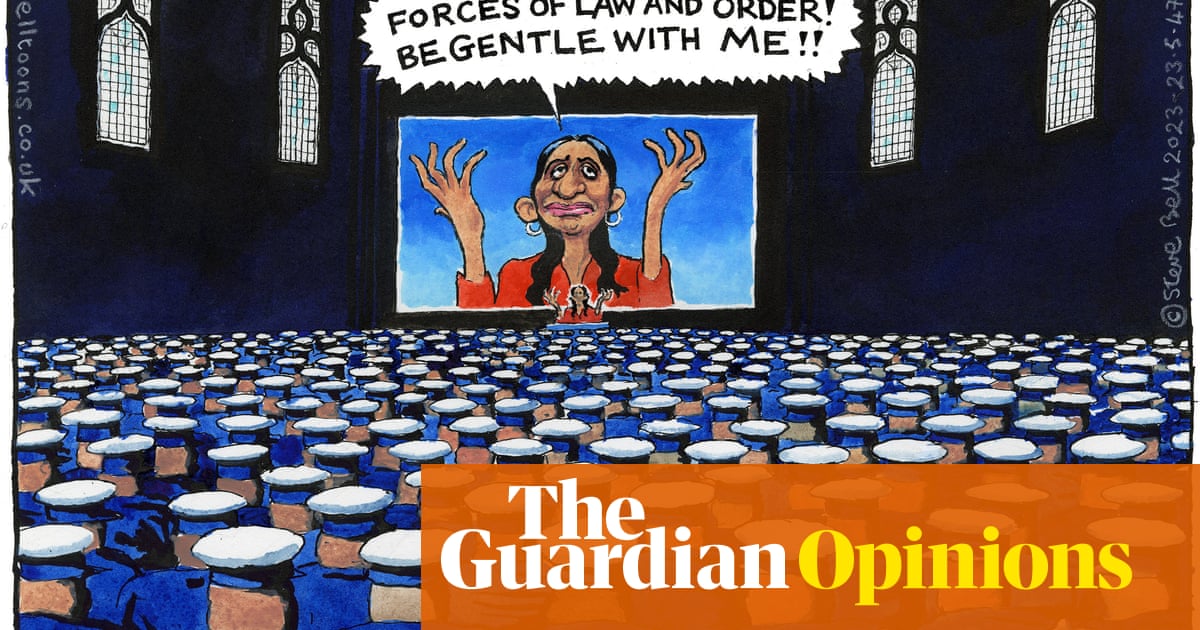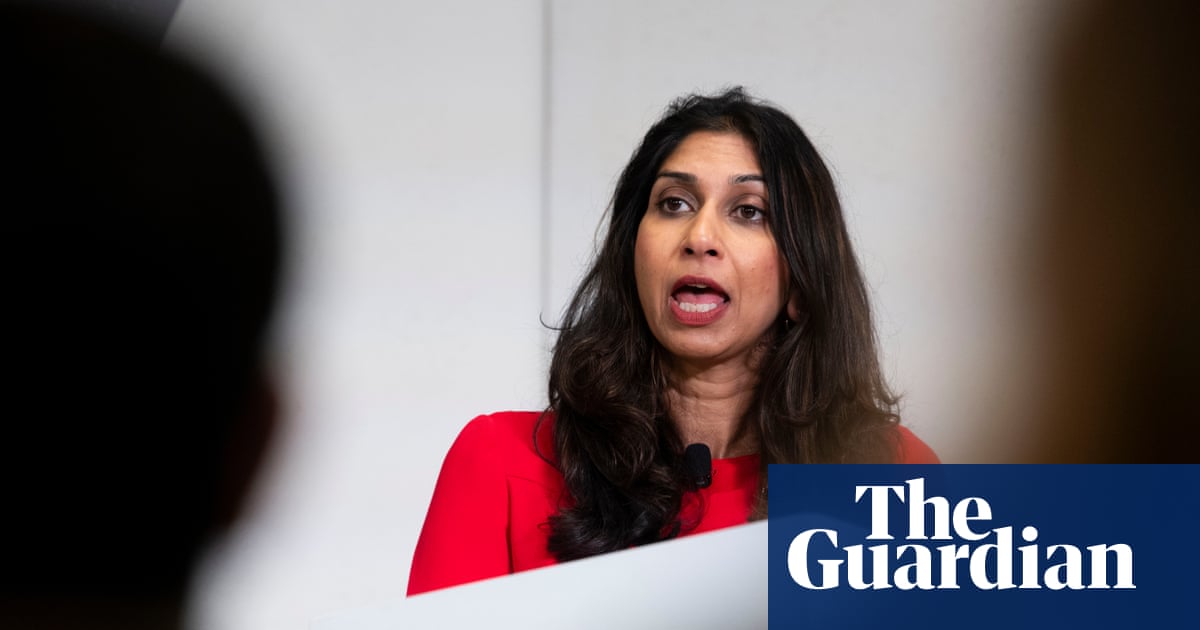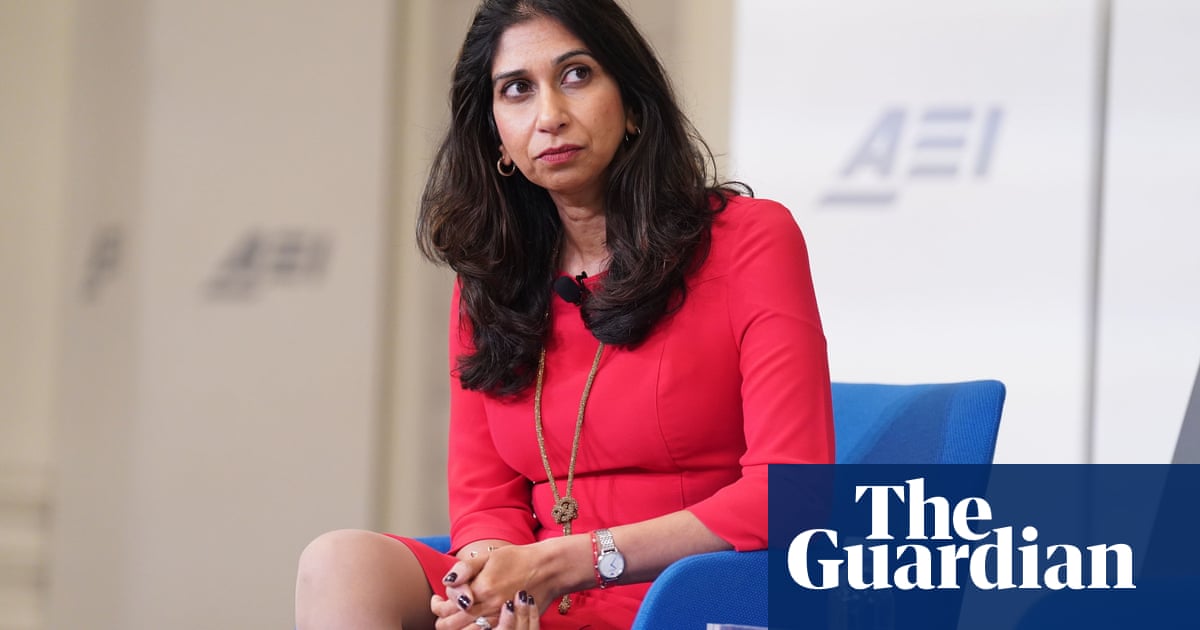
The UN’s refugee agency has rebuked Suella Braverman after she claimed that world leaders had failed to make wholesale reform of human rights laws because of fears of being branded “racist or illiberal”.
The UNHCR issued a highly unusual statement on Tuesday defending the 1951 refugee convention and highlighting the UK’s record asylum claim backlog.
It came after the home secretary refused to rule out leaving the convention and said the international community had “collectively failed” to modernise international laws.
She also claimed that women and gay people must face more than discrimination if they are to qualify as a refugee – a statement that has been challenged by refugee charities.
Speaking to the American Enterprise Institute in Washington DC, Braverman claimed the international community had failed to reform the UN’s refugee convention of 1951 and the European convention on human rights (ECHR).
“The first [reason] is simply that it is very hard to renegotiate these instruments. The second is much more cynical. The fear of being branded a racist or illiberal. Any attempt to reform the refugee convention will see you smeared as anti-refugee,” she said.
She began her speech by claiming that uncontrolled and illegal migration posed an “existential challenge” to Europe and the US.
“I’m here in America to talk about a critical and shared global challenge: uncontrolled and illegal migration,” she said. “It is an existential challenge for the political and cultural institutions of the west.”
She claimed case law arising from the refugee convention had lowered the threshold so that asylum seekers needed only prove that they faced discrimination instead of a real risk of torture, death or violence.
“Where individuals are being persecuted, it is right that we offer sanctuary. But we will not be able to sustain an asylum system if, in effect, simply being gay, or a woman, and fearful of discrimination in your country of origin is sufficient to qualify for protection.”
Asked after the speech whether the UK would consider leaving the convention if changes were not delivered, Braverman said the government would do “whatever is required” to tackle the issue of migrants arriving via unauthorised routes.
She said: “The prime minister himself has said we will do whatever it takes to stop the boats and that is my position.”
In a statement, the UNHCR backed the convention and questioned Braverman’s distinction between persecution and discrimination.
“The refugee convention remains as relevant today as when it was adopted. Where individuals are at risk of persecution on the basis of their sexual orientation or gender identity, it is crucial that they are able to seek safety and protection,” it said.
Rejecting an overhaul of the convention, the UNHCR called for a “more consistent application of the convention and its underlying principle of responsibility-sharing” and pointedly referred to the UK’s asylum backlog, which was more than 175,000 last month.
“An appropriate response to the increase in arrivals and to the UK’s current asylum backlog would include strengthening and expediting decision-making procedures,” the statement said.
Responding to the speech, the Refugee Council, which works closely with asylum seekers, questioned Braverman’s claim that there was a lower bar to being granted asylum on the grounds of discrimination.
Jon Featonby, the charity’s chief policy analyst, said: “In our work with people in the asylum system, we have seen no evidence that Home Office decision-makers are lowering the threshold for asylum so that a well-founded fear of persecution is replaced with discrimination. The home secretary’s claims do not appear to be grounded in credible evidence.”
ActionAid UK said seeking asylum was the only lifeline left for the many women and girls its dealt with who were fleeing persecution. The charity’s chief executive, Halima Begum, said: “Denying this fundamental right is not just a policy choice; it’s a direct affront to gender equality and human rights.”
Andrew Boff, a Conservative London assembly member and patron of the LGBT+ Conservative group, said Braverman should stop engaging in “dog-whistle” politics and focus on the “basket case” that was her department.
“Talking about the victims of persecution as if they are the problem is incredibly unhelpful and really paints us as an uncaring party. I’m deeply unhappy with it,” he said.
The 4,497-word speech came after two days of headlines about Braverman’s three-day visit to the US during which she is expected to meet representatives of the Biden administration.
Braverman held back from calling for the UK to leave the ECHR – a move that friends say she would like to see in a Conservative election manifesto – but said leaving human rights conventions had been supported by previous Tory leaders.
“As home secretary, Theresa May called for Britain to leave the ECHR. And it was Conservative party policy under Michael Howard to leave the refugee convention – I’m merely advocating for reform,” she said.
A former Tory cabinet minister told the Guardian that Braverman was making a “cynical pitch” to gain support before the Conservative party’s annual conference, which begins this weekend.
“The home secretary has created a row to obscure her poor record in office given she has a stalled Rwanda scheme, a stalled barge for migrants, and a mutinous police force,” the former minister said.
As she left the thinktank’s venue, Braverman ignored a question from a reporter asking whether her speech had been designed to improve her chances of becoming Conservative leader.




